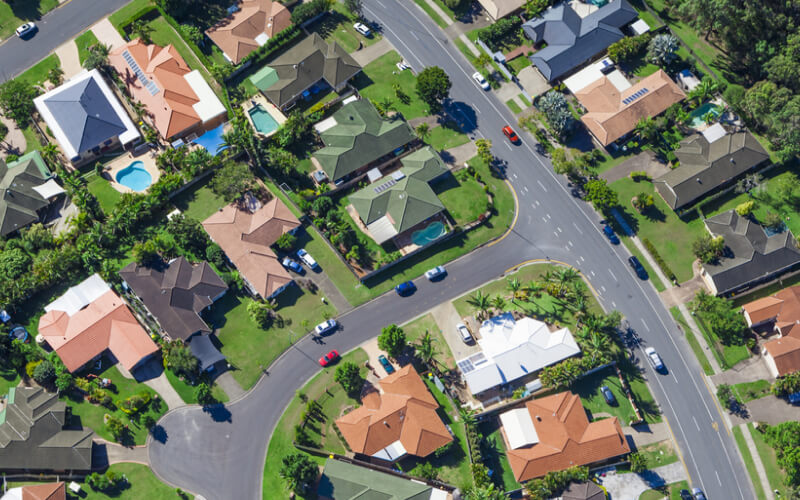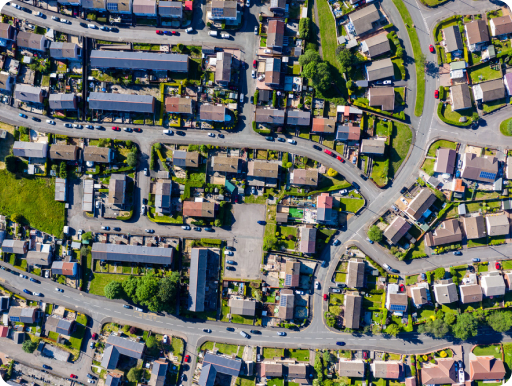When it comes to selling a home – whether it be a principal place of residence or an investment property – we often think about the purchase price and how much we’ll earn from the sale. But most of us don’t stop to think about how much it costs to sell a home in Australia.
In this article, we’ll be going over the fees involved in selling a $1 million home in Victoria, because understanding these expenses is crucial for a successful sale.
From conveyancing fees to real estate fees, auctioneer’s fees to marketing fees and more, here’s what you can expect to pay when selling a home in Victoria.
Selling a $1 Million Home in Victoria: How Much Does it Cost?
It might seem counterintuitive to think about how much it costs to sell a home, but it’s important you factor in these fees and costs to ensure you have a successful and hassle-free sale. Here are some of the common fees involved in selling a home that homeowners often don’t think about:
Conveyancer Costs and Fees
When it comes to selling an Australian property, a conveyancer plays a crucial role in ensuring a smooth and legal transfer of ownership. They handle all the legal aspects of the transaction, making sure everything is done correctly.
A conveyancer’s fees will depend on a range of factors, like the complexity of the transaction, your chosen conveyancer’s level of experience and whether you opt for a conveyancer or a solicitor. On average, you can expect conveyancing fees to range anywhere from $500 to $2,200, and this will depend on the value of the property you’re selling.
Registration & Transfer Fees
Registration fees are charges imposed by the state government for registering the transfer of property ownership. These fees typically range from $100 to $200.
Another expense to keep in mind is the transfer fee, which is paid to the Land Titles Office for transferring the property into the buyer’s name. Transfer fees in Victoria can vary, but they generally fall within the range of $100 to $400.
Now, let’s take a closer look at these costs in the context of selling a $1 million home in Victoria. For conveyancing fees, you can expect to pay around 0.5% to 1% of the property value, which amounts to approximately $5,000 to $10,000 for a $1 million home. Registration fees and transfer fees will add an additional $200 to $600 to the overall cost.
Real Estate Agent Commission
When selling a home, one of the most significant costs to consider is the real estate agent commission. In Victoria, the average commission rate typically falls between 1.6% and 2.5% of the sale price. For example, if the price of the property is $1 million, you can expect to pay approximately $16,000 to $25,000 in commission fees.
It’s important to remember that the actual commission rate may vary depending on factors such as the real estate agent’s experience, the local market conditions, and the specific services provided. Some agents may negotiate their commission rates, so it’s worth discussing this aspect with potential agents.
Real estate agent commissions cover the professional services provided by the agent throughout the selling process. These services include listing the property, marketing and advertising, conducting open houses and property viewings, negotiating with potential buyers, and guiding you through the legal and paperwork aspects of the transaction.
While real estate agent commissions may seem substantial, it’s important to consider the value they bring in terms of expertise, market knowledge, and their ability to attract potential buyers. A skilled agent can help you navigate the complexities of the real estate market, market your property effectively, and negotiate good terms for you.
Marketing and Advertising Costs
Another cost sellers often don’t consider is the costs associated with marketing and advertising the sale of your home. Generally, you can expect to spend anywhere from $500 for a basic marketing package to over $5000 for a comprehensive advertising strategy.
The price range takes into account various factors such as the size of your property, the target audience, and the marketing channels you use. Basic marketing packages often include essential elements such as online listings on real estate websites, professional photography, and signage. These are fundamental tools to attract potential buyers and generate interest in your property.
Of course, you can choose a more comprehensive marketing campaign, but this will inevitably cost more. This may involve additional promotional activities such as premium online listings, virtual tours, video presentations, social media advertising, print media advertisements, and targeted marketing campaigns.
Auctioneer’s Fee
If you decide to sell your property through an auction, it’s important to be aware of the auctioneer’s fee. This fee covers the services provided by the auctioneer during the auction process and can vary in cost. On average, auctioneer’s fees range from $200 to $1,000.
The auctioneer plays a critical role in conducting the auction, setting the bidding pace, and facilitating the sale. They have the necessary expertise to engage potential buyers and create a competitive environment that may result in a higher selling price for your property.
The specific amount you’ll pay depends on various factors, including the experience and reputation of the auctioneer, the location of the auction, and the complexity of the sale.
Title Search
A title search is part of the conveyancing process, and in Victoria, you can obtain a copy of the title from the LANDATA website. The cost for this service is usually around $25-$30 per property.
Capital Gains Tax (CGT)
If the property you’re selling isn’t your primary place of residence (AKA owner occupied), you will likely need to pay Capital Gains Tax (CGT). CGT is a tax on the profit made from the sale of an asset, such as real estate, stocks, or investment properties.
The capital gain is calculated by subtracting the original purchase price and any associated costs (such as renovations or legal fees) from the sale price of the property.
The rate of CGT varies depending on your income tax rate and the length of time you have owned the property. Generally, the longer you have owned the property, the lower the CGT rate may be. However, it’s important to note that CGT rates can be quite substantial, and the actual amount you owe will depend on your specific circumstances.
Other Potential Costs
In addition to the major costs associated with selling a property, there are some other potential expenses to consider. These costs can vary depending on your specific situation and the condition of the property. Here are a few examples:
- Mortgage Discharge Fees: If you have a mortgage on the property you’re selling, you may need to pay mortgage discharge fees to release the mortgage and transfer ownership to the buyer. These fees can vary depending on your lender and the terms of your mortgage agreement.
- Home Staging Costs: To present your property in the best possible light and attract potential buyers, you might consider home staging. Home staging involves arranging and decorating the property to enhance its appeal and create a welcoming atmosphere. While it’s not a mandatory expense, investing in professional home staging can significantly improve the chances of selling your property quickly and at a desirable price. Costs for home staging services can vary depending on the size and complexity of the property, as well as the duration of the staging.
- Minor Repairs or Improvements: Before listing your property for sale, it’s common to make minor repairs or improvements to enhance its marketability. This could include fixing any noticeable issues, refreshing paint, updating fixtures, or improving curb appeal. While these costs can vary depending on the scope of work required, it’s important to budget for potential repairs or improvements to ensure your property is in its best condition for potential buyers.
- Moving Costs: Once your property is sold, you’ll likely need to consider the costs associated with moving out and moving into your new home. This can include hiring professional movers, renting a moving truck, and so on.
What About Stamp Duty?
Stamp duty rates are a tax imposed by the government on certain types of transactions, including the purchase of property. It is typically paid by the buyer, not the seller.
When you sell a home, the buyer may be required to pay stamp duty based on the purchase price and the applicable rates set by the government.
As the seller, you are generally not directly responsible for paying stamp duty when selling your property. However, it’s worth noting that the potential stamp duty payable by the buyer may indirectly impact the negotiations and final sale price of your property.
Tips for Minimising Costs and Maximising Returns
Hire a Trusted Conveyancer
When engaging a conveyancer or solicitor for the selling process, it’s essential to compare costs and services. Obtain quotes from multiple professionals and carefully review their offerings to ensure you get the best value for your money. Consider their experience, reputation, and the specific services included in their fees.
Explore Refinancing Options
If you currently have a mortgage on the property you’re selling, it might be worthwhile to explore refinancing options. Speak to a mortgage broker who can assess your situation and help you find better interest rates or loan terms. Refinancing can potentially lower your monthly mortgage payments and free up funds that can be used for other aspects of the selling process.
Seek Advice from Mortgage Brokers
Mortgage brokers have extensive knowledge of loan products and can provide valuable guidance on managing your finances effectively. They can help you navigate through different lenders and loan options, ensuring you make informed decisions that align with your financial goals. By exploring different loan options, you may find options with lower fees or more favorable terms that can contribute to maximizing your returns.
Time the Sale Strategically
Timing can play a crucial role in achieving the best results when selling a property. Research the local property market and consult with real estate professionals to determine the most favorable time to list your property. Market conditions, seasonality, and local demand can all influence the speed of the sale and the price you can command.
FAQs
What is the process for refinancing a home loan when selling a property?
Refinancing a home loan while selling a property involves paying off your existing loan with the proceeds from the sale or transferring the loan to another lender. It’s important to assess your current loan terms, compare new loan options, and consider any potential costs or fees associated with refinancing. Consulting a mortgage broker can help you navigate the process and find the most suitable refinancing solution for your needs.
How is land transfer duty (stamp duty) calculated in Victoria?
In Victoria, land transfer duty, also known as stamp duty, is calculated based on the dutiable value of the property. The dutiable value is usually the higher of the property’s purchase price or its market value. The State Revenue Office provides a stamp duty calculator to help estimate the amount of duty payable, taking into account various factors such as property type, purchase price, and any applicable concessions or exemptions.
How is the value of a property determined during the selling process?
The value of a property during the selling process is typically determined through a property valuation. A professional valuer assesses various factors, including the property’s location, size, condition, comparable sales in the area, and current market conditions.
What are the implications of selling a residential property as an investment property?
Selling a residential property that has been used as an investment property may have tax implications, including capital gains tax (CGT). CGT is calculated based on the profit made from the sale and is subject to your income tax rate. It’s a good idea to consult with a tax professional to understand the specific CGT implications and any exemptions or concessions that may apply in your situation.
Is the cost of selling a house the same across Australia?
Whether you’re selling an established home in NSW, VIC, Queensland, Australian Capital Territory, Western Australia, South Australia, Tasmania or the Northern Territory, there will be costs involved in selling your home. The actual costs will vary from state to state, and property to property.
Get Help From the Experts at Settled
Whether it’s your first time selling a home or you’ve gone through the process before, it pays to get the right help. At Settled, we’re expert conveyancers, guiding you smoothly through the legal transfer of home ownership. We handle all the paperwork, contracts, and negotiations so you don’t have to, ensuring compliance with Victoria’s specific requirements. Our goal is to make the selling process stress-free by taking care of the little and big details, so you can focus on making it through the sale of your property without any added stress or hassle.
Check your eligibility and get free conveyancing quote here.
Get a free conveyancing quote
Obligation free quote for home and land conveyancing
Read More












